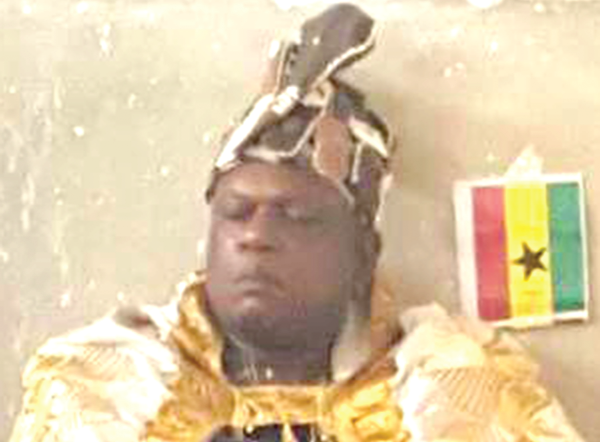
Ethnic groups will be recognised in proposed Savannah Region — Banbange Ndafoso IV
The Paramount Chief of the Kpembe Traditional Area in the Northern Region, Banbange Ndafoso IV, has given an assurance that all ethnic groups in the Gonja Traditional Area will be duly recognised in the proposed Savannah Region to promote peace, unity and ethnic diversity.
He said a house of chiefs would be inaugurated to bring all chiefs of the 26 ethnic groups in the Gonjaland together to network, share ideas and pool their resources together to promote peace and facilitate development in the Savannah Region.
Advertisement
"All ethnic groups in the Gonja Traditional Area would come together to champion a common course which would bring development to the area and promote peace, it is not about Gonjas but it is about the people of the Savannah Region.
All ethnic groups paying allegiance to other ethnic groups would continue to pay allegiance to those ethnic groups despite the new region," he indicated.
Kpembewura Ndafaso IV said this last Tuesday at the public hearing of the Commission of Enquiry into the creation of the New Regions at Salaga in the East Gonja District in the Northern Region.
A petition was presented by the chiefs and people of the Gonja Traditional Area demanding for the creation of a new region out of the existing Northern Region with a proposed name as the Savannah Region.
Ethnocentric allegations
There were claims by a cross section of the public that the creation of the new region in Gonjaland with the proposed name Savannah Region was an attempt to segregate the Gonja ethnic group from the other minor ethnic groups and also to limit their traditional authority.
This is because out of the 26 ethnic groups, the Gonja ethnic group covers about 90 per cent of the entire Gonjaland.
Among the ethnic groups in Gonjaland are Gonjas, Valgas, Brifos, Komkombas and Fulanis.
But, the paramount chief of the Kpembe Traditional Area indicated that the rationale for the creation of the new region was to promote peace and accelerate development in the area and not for supremacy as being perceived.
He said the inclusion of the various ethnic groups in the demand for the new region demonstrated the peace and unity that was prevailing in Gonjaland.
Gonjaland public hearing ended
The Commission of Enquiry's public hearing at Salaga was the last public hearing held in the Gonja Traditional Area.
The commission had earlier on held four other hearings at Buipe, Damongo, Bole and Sawla, all in the Gonjaland, as well as another in Tamale to seek the views of the people on the creation of a new region out of the current Northern Region as demanded by the Gonja Traditional Area.
The series of hearings held in the Gonjaland recorded massive turnout as authorities temporarily closed down all business activities to enable large number of people to attend the event.
Among the key issues cited by the public as reasons of the demand for the creation of the new region were unemployment, inadequate infrastructure, ineffective administration and the need for peaceful coexistence.
Mamprugu Area
Meanwhile, the Commission of Enquiry has moved to Mamprugu to hold similar public hearings in Nalerigu, Walewale, Bunkpurugu and Yagba Kubori.
The Chairman of the commission, Justice Stephen Allan Brobbey, in his address, expressed satisfaction about the massive turnout at the public hearings in the Gonjaland and gave the assurance that views would be considered for the creation of the Savannah Region.




